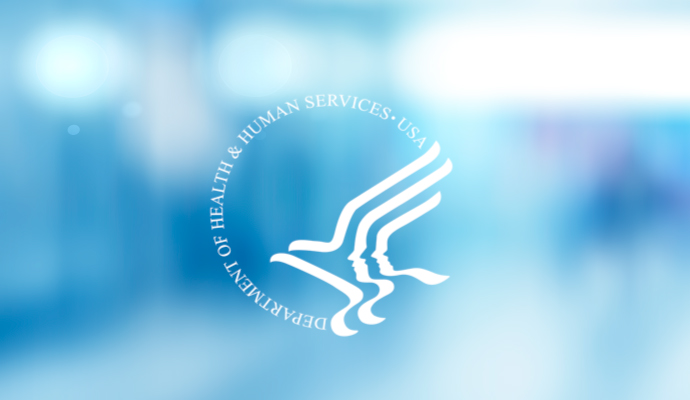HHS Proposal Codifies Antidiscrimination, Protects Patient Access to Care
The proposal looks at antidiscrimination for people with disabilities, protecting their right to patient access to care, HHS said.

Source: HHS
- A new proposed rule out of the Department of Health and Human Services seeks to update parts of the Rehabilitation Act of 1973 to further prohibit discrimination on the basis of disability in healthcare and improve patient access to care.
Particularly, the rule would update the Nondiscrimination on the Basis of Disability in Programs or Activities Receiving Federal Financial Assistance, published originally in 1977 to codify Section 504 of the Rehabilitation Act of 1973. The rule was intended to help people with disabilities access healthcare and protect them from discrimination in any program that receives HHS funds.
This proposed update aims to further cement patient access to care and nondiscrimination in healthcare, specifically by targeting the accessibility of certain services funded by federal dollars.
“It’s 2023, yet for many Americans accessing basic health needs is still challenging,” HHS Secretary Xavier Becerra said in a statement. “Some persons with disabilities may have to drive hours to get an accessible mammogram or receive the benefit and advancements of our health care system. This historic proposed rule will advance justice for people with disabilities and help ensure they are not subjected to discrimination under any program or activity receiving funding from HHS just because they have a disability.”
The Notice of Proposed Rulemaking (NPRM) zeroes in on several areas to update and clarify Section 504. HHS said the NPRM rule
- Ensures that medical treatment decisions are not based on biases or stereotypes about individuals with disabilities, judgments that an individual will be a burden on others, or beliefs that the life of an individual with a disability has less value than the life of a person without a disability;
- Clarifies obligations for web, mobile, and kiosk accessibility;
- Establishes enforceable standards for accessible medical equipment;
- Clarifies requirements in HHS-funded child welfare programs and activities;
- Prohibits the use of value assessment methods that place a lower value on life-extension for individuals with disabilities when that method is used to limit access or to deny aids, benefits, and services.
- Clarifies obligations to provide services in the most integrated setting appropriate to the needs of individuals with disabilities.
To be sure, Section 504 already lays out a framework to protect people with disabilities from discrimination in healthcare, HHS clarified in a press release about the proposed rule. However, the agency said that the legal landscape has shifted since the law was enacted in the 1970s and that updates are necessary to further protect individuals with disabilities.
“While we have made significant progress since Section 504 was signed into law nearly 50 years ago, there is more work for us all to live up its promise to the American people,” HHS Office for Civil Rights (OCR) Director Melanie Fontes Rainer explained in the press release.
“Today’s rule is long overdue and a major step forward in the fight to ensure that people with disabilities are not excluded from or discriminated against in health care and social services across the United States,” Fontes Rainer added. “Once again, the Biden-Harris Administration is making clear that we must do better and stand up to improve equitable access to health care, free of discrimination.”
The proposed updates clarify healthcare entities’ obligations that are not already explicitly stated in Section 504, HHS added. The updates will also provide some consistency with other laws protecting people with disabilities, including the Americans with Disabilities Act, the Americans with Disabilities Amendments Act, amendments to the Rehabilitation Act, and significant case law.
“The COVID-19 pandemic shone a spotlight on the discrimination that too many people with disabilities continue to face, from denial of medical treatment due to ableism, to inaccessible medical equipment and websites, to having no choice but to receive services in institutional settings,” Alison Barkoff, who leads the Administration for Community Living, said in a statement. “ACL is pleased to have collaborated with the Office for Civil Rights to ensure the rule addresses the most pressing issues and priorities of the disability community.”
